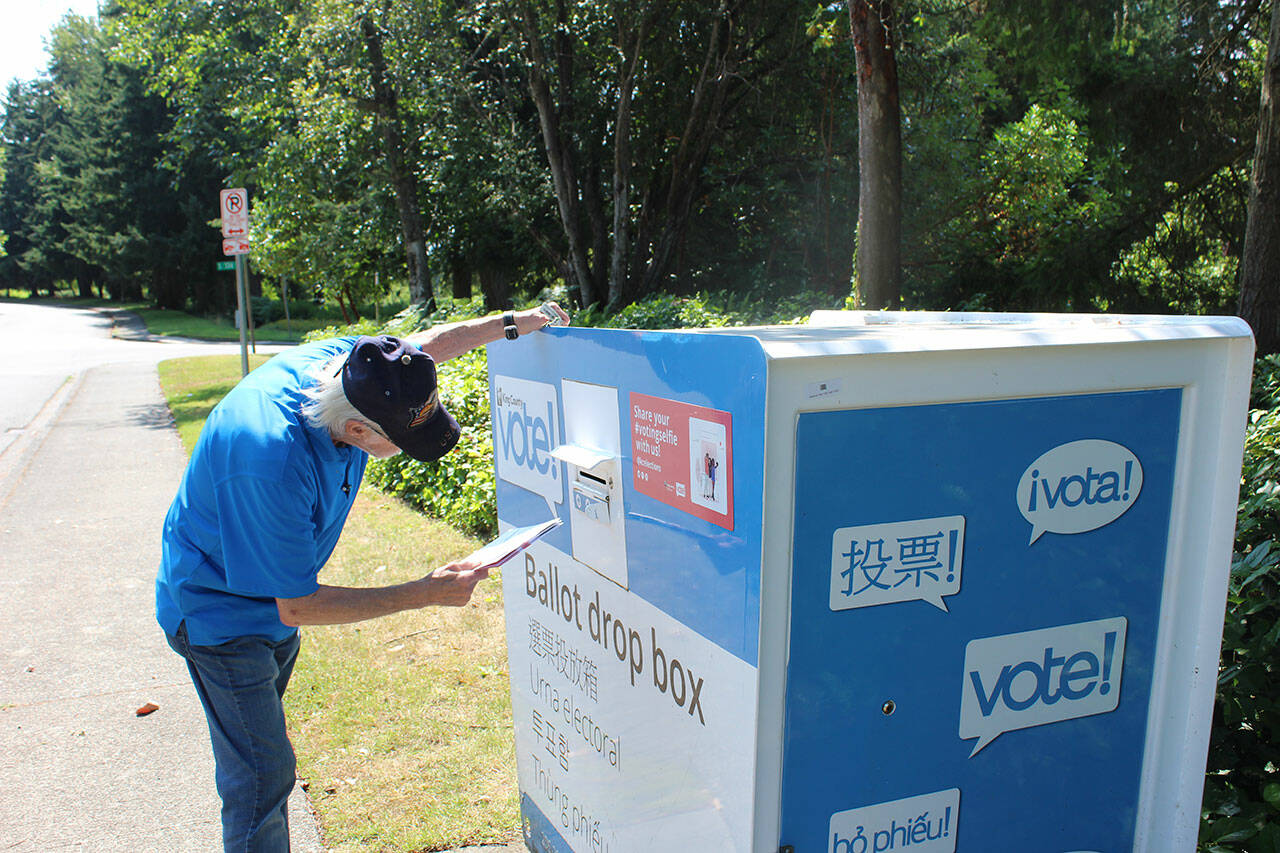As the SAVE Act moves on to the U.S. Senate, one step closer to possibly becoming federal law, Washington’s Secretary of State said that such a law would create unnecessary barriers to Washington voter registration, disenfranchising many eligible voters.
On April 10, the U.S. House of Representatives passed H.R. 22, also known as the Safeguard American Voter Eligibility (SAVE) Act, in a 220-208 vote. Four Democrats joined every present Republican in voting for the measure, including Rep. Marie Gluesenkamp Perez of Washington’s 3rd Congressional District.
The SAVE Act would require in-person documentary proof of U.S. citizenship to election officials in order to vote in federal elections, which Rep. Adam Smith (D) of the 9th Congressional District said would disenfranchise millions of Americans.
“The right to vote in free and fair elections is one of the most important foundations of our democracy. The SAVE Act takes us backwards by stripping voting away from millions of Americans who should be able to vote, from overseas servicemembers to married women who changed their names,” said Congressman Smith in a statement.
It has been illegal for non-citizens to vote for the U.S. president, vice president and members of Congress since 1996, and the AP reported in September 2024 that illegal voting by non-citizens in the U.S. is rare.
“We already verify eligibility and maintain secure, accurate voter rolls,” said Washington Secretary of State Steve Hobbs. “In 2024, nearly half of the 900,000 motor voter registrations processed didn’t include documentary proof of citizenship — something the SAVE Act would now require. That could block or delay eligible voters from participating in federal elections.”
If the bill were to become law, registering to vote would mean in-person presentation of one of the following:
• REAL ID-compliant forms of identification
• A verified U.S. passport
• U.S. military ID (which would have to be paired with U.S. military record of service that shows the applicant was born in the U.S.)
• A valid government-issued photo ID card issued by a federal, state or tribal government that shows the applicant was born in the U.S.
If an applicant does not have any of the above documents, then they would need to present a valid government-issued photo ID card by a federal, state or tribal government (like a state driver’s license), along with one or more forms of ID, like a birth certificate or other forms of ID that would prove the applicant was born in the U.S.
There are no avenues within the bill that would provide exceptions for applicants whose information may have changed since birth, such as names or sex designations.
An estimated 1,643,288 women in Washington have a name that does not match their birth certificate, often due to a name change or hyphenation after getting married, according to the Center of American Progress, an independent non-partisan police institute.
“If this policy becomes law, it will disenfranchise over a million women in Washington state, disenfranchise servicemembers deployed overseas, and could cost Washingtonians over $361 million just to register to vote,” said Congressman Smith.
The deadline to obtain a REAL ID, which will be required to fly domestically, is on May 7 — while roughly 38.6% of Washington citizens are estimated to not currently hold a valid U.S. passport. The cost for these forms of documentary proof of citizenship would potentially disenfranchise low-income voters, according to Congressman Smith.
Other types of voters would be greatly burdened, like Native American voters who live in Washington, as “IDs issued by Tribal governments within Washington generally do not show place of birth or American citizenship,” according to a statement from Smith.
If made law, the SAVE Act would also put up a barrier for eligible servicemembers and voters living abroad to register to vote.
“The SAVE Act would prevent Washingtonians from registering to vote by mail or online, requiring an applicant to present documentary proof of citizenship in person at an appropriate election official’s office,” said a statement from Smith. “This means that any servicemember deployed overseas will have to travel back to Washington and physically visit an election office to register to vote. This requirement would effectively end automatic voter registration in Washington.”
According to the League of Women Voters of Wisconsin, not having a readily available birth certificate or passport would also potentially affect eligible rural voters, older voters and voters who may have been impacted by a natural disaster
“As election officials prepare for the upcoming midterms, the SAVE Act — combined with Executive Order 14248 — adds uncertainty and confusion at a time when clarity and consistency are urgently needed,” said Hobbs. “While the act faces long odds in the Senate due to the filibuster, the conversation alone creates unnecessary doubt about a system that is already secure, tested, and trusted.”
Learn more
Click here to read the SAVE Act or see below.
SAVE Act by andy.hobbs on Scribd
Talk to us
Please share your story tips by emailing editor@kentreporter.com.
To share your opinion for publication, submit a letter through our website https://www.kentreporter.com/submit-letter/. Include your name, address and daytime phone number. (We’ll only publish your name and hometown.) Please keep letters to 300 words or less.

